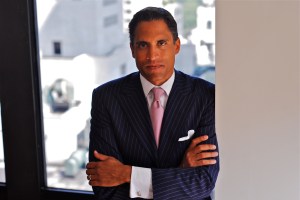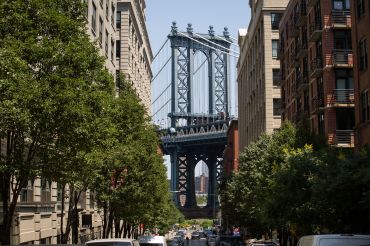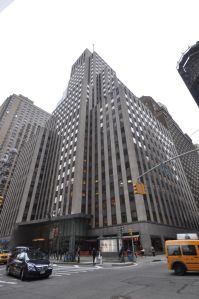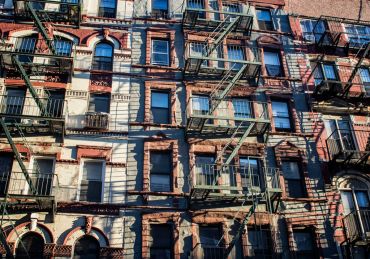Distressed for Success: Donald Cogsville on His Eponymous I-Firm’s Delicate Dance
By Jotham Sederstrom September 7, 2010 4:33 pm
reprints Since 2007, the Cogsville Group has aligned itself with some of the largest development projects and distressed assets in the nation, including Brooklyn’s 46-building Starrett City complex. A former lawyer at Skadden Arps and investment banker at Merrill Lynch, founder Donald Cogsville, 45, discussed the private-equity firm’s $1.8 billion purchase of F.D.I.C. real estate loans and his former life as a professional soccer player.
Since 2007, the Cogsville Group has aligned itself with some of the largest development projects and distressed assets in the nation, including Brooklyn’s 46-building Starrett City complex. A former lawyer at Skadden Arps and investment banker at Merrill Lynch, founder Donald Cogsville, 45, discussed the private-equity firm’s $1.8 billion purchase of F.D.I.C. real estate loans and his former life as a professional soccer player.
The Commercial Observer: The Cogsville Group partnered in July with Colony Capital in a purchase from the F.D.I.C. of a $1.8 billion portfolio of more than 1,600 commercial real estate loans. Can you elaborate on the deal?
Mr. Cogsville: I think there’s a real opportunity for us with this. It was a competitive process at the F.D.I.C. We bid on three other structured loan sales from the F.D.I.C. and lost each of them. Colony is in a unique space to manage the assets, and we’ll be helpful around the edges. We’re excited about the prospect, and I think the work really begins now to actually be creative in how we resolve these loans moving forward. It’s everything from multifamily to retail to office to vacant land. It’s all across the commercial spectrum. It’s 41 states, including Honolulu and some here in New York. So it’s a unique opportunity for us.
What was the Cogsville Group’s role in the purchase of Starrett City?
With Starrett, we won the designation, if you will. It was a competitive process. It was probably one of the more complicated transactions I’ve seen in my career. We went into it a bit unheralded because there were larger players also pursuing the property, and our thought was that this was going to wind up a being a very public-private transaction that had important consequences to the city. So we actually put together a plan that preserved affordability but also captured a commercial return, which is critical.
We won the designation, but ultimately we didn’t close because the deal floundered on price. So, subsequently, the owners refinanced it. But what it did for us, having gone through that process, was we were able to put our thoughts about multifamily and public-private partnerships into what we believe are really truly distressed multifamilies, both here and nationally. So it wasn’t a loss for us.
I imagine it gave the Cogsville Group heightened visibility, what with all the headlines.
Absolutely. It embodied a lot of what we’re now seeing on the federal side, which is the notion that we’re in the middle of some complex urban problems. Sometimes they manifest in housing or on the commercial side, but the idea is to bring not just your checkbook but also your creative solutions to these problems. And because it was so big and consequential, it was talked about a lot. So we sort of came in to a bit of consciousness, which has been fortunate because we were able to show that we could walk the walk. We said this was something we were skillful at and, fortunately, people have become our investors or our partners subsequent to that.
As a minority-owned business, are there any challenges you face as a result of the downturn that other firms might not be facing?
From an investor standpoint, everyone’s suffering. I mean, to some degree, we’re fortunate in that we started the business with the concept that distress was coming; so we really had no legacy issues. So we’re not really triaging deals that we invested in before the crises. So we had a bit more blue sky, and the firm notion was that there will be this distress and it will be three-dimensional, and we’re going to participate in it. So we feel like we entered the market at a really positive time.
Do you believe there is a social purpose to what you do at the Cogsville Group?
That’s always a little tricky because we’re an investment firm and have to have a commercial return. Having said that, especially in 2010, and forward, there’s an opportunity to be part of the solution to an amazing amount of problems. Starrett City would’ve been an example. We understood that there was a North Star to preserve affordability. But at the same time, we really needed to capture a commercial return for our investors. I don’t think the two are mutually exclusive.
So we do go into each transaction looking at how we can make a return but also be part of the fabric of any community we’re participating in. That would include [the F.D.I.C.] portfolio that we purchased last month. We’re actively going out to make a commercial return but also make sure we’re having a good impact, too.
How can you make a positive impact with the loans in that portfolio?
Well, there are resolution decisions to be made. So right now, we’re taking over a portfolio with performing and nonperforming loans. As an operator or investor who has decision-making authority, you’re deciding whether or not you’re going to modify, do a deed in lieu, or you’re going to foreclose. Those decisions will have consequences on that local economy and, ultimately, given the enormity of the real estate problem, sort of what our overall national economy may look like.
Your father, Donald Cogsville Sr., played a prominent role in the revitalization of Harlem as the leader of the Harlem Urban Development Corporation. Are you continuing his work in the area?
I’m staying at home with my two kids and my wife in Harlem. I’ve been there since I’ve been an adult. So, certainly, it’s near and dear to my life. My grandmother came from down South to live in Harlem. She was from Virginia. So there are deep roots there. My wife, her family came to Harlem from the Caribbean. So we came [from the] South and she came from the Caribbean. So there’s a deep connection to Harlem, and we want to be part of the renaissance of Harlem, if you will. There’s no question.
You briefly played professional soccer in the Major Indoor Soccer League. Who were you rooting for during the World Cup earlier this year?
Oh, U.S., of course. I played for the U.S. team. And I think we’re on the cusp; I think our country is on the cusp of winning one of these days.


